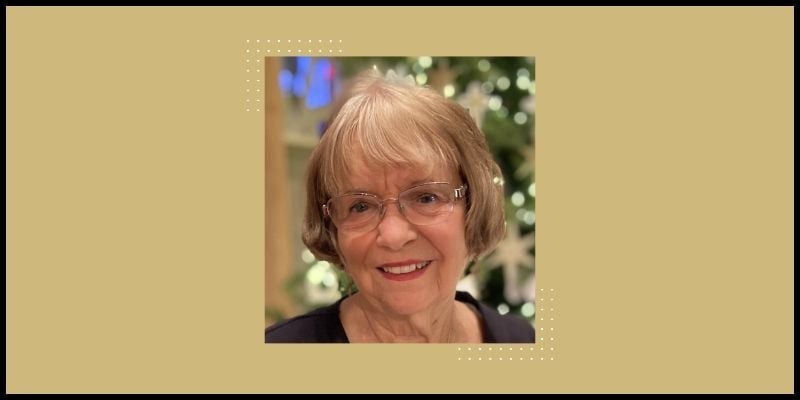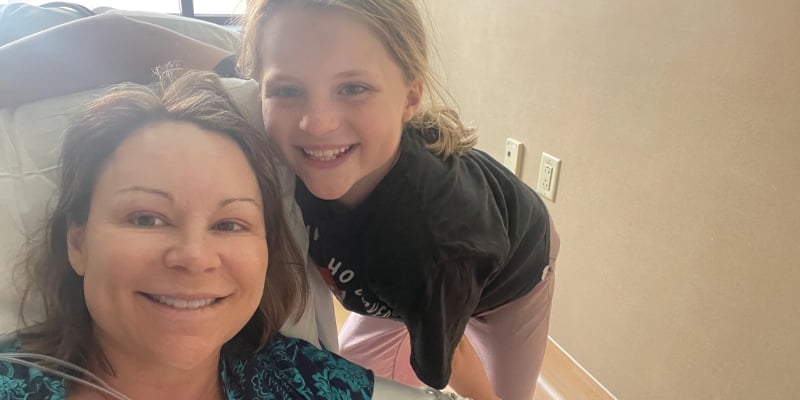Many things will come and go over a 30-year timespan, but friendships make an enduring impression.
Since Maribel Cifuentes (BSN ’94) and William Gold (BSN ’94) attended the University of Colorado School of Nursing in the early 90s, much has changed. For example, the school relocated from what was called the CU Health Sciences Center in Denver to the University of Colorado Anschutz Medical Campus in Aurora in 2008 and changed its name to the CU College of Nursing.
Currently, Cifuentes manages a grant portfolio at Colorado Health Foundation that supports affordable housing, food access and security, and child and youth physical well-being. Gold works as a medical informatics expert at Children’s Hospital Colorado. Both became close friends while earning their BSN at CU Nursing. Gold was even in Cifuentes’ wedding party back in the day.
“Without friends like Maribel, the stress of nursing school would have been way too much for me,” Gold said. “I would not have made it. My friends at CU Nursing showed me the true meaning of caring for others.”
Cifuentes concurred that her friendship with Gold was critical to her education.
“I remember a time when I felt like I didn’t belong in nursing school and was not sure that I would make it through,” she said. “Bill and a handful of other friends convinced me that not only would I make it through, but I would succeed beyond my wildest imagination. Their belief in me motivated me through the ups and downs and kept me grounded when things were hard. Now I look back and realize that we did that for each other, and it made us better nurses and better people.”
Studies suggest a correlation between friendships and academic success. In nursing school, where the curriculum can be all-consuming, having a support network within your cohort can be as important to your educational experience as your professors and advisors. After all, peers in your program know first-hand about the challenges and tribulations you might face while earning your degree or working towards your certification.
“Without friends like Maribel, the stress of nursing school would have been way too much for me. I would not have made it.” – William Gold, BSN ’94, RN, CU Nursing Alumnus and medical informatics expert at The Children’s Hospital Colorado
To that point, alumni and students from CU Nursing shared their thoughts on the importance of making friends – and keeping them – during and after nursing school:
Why peer relationships are important
If nursing school is so much work, who has time for friends and why are they essential for the educational experience? Ginette Pepper, RN, BS ’68, PhD, ’85, a CU Nursing alumna and former tenured faculty who currently consults on a part-time basis in the Office of Research and Scholarship, says that forming friendship bonds during school is critical for thriving in a program.
“Most family and friends outside of nursing school don’t understand what you are experiencing,” she says. “Even those who have attended college and grad school probably haven’t done it within a nursing context. Not only do you share experiences, you also share intellectual interests. While others are talking about a TV show or a football game, you might need to talk about something like Whitehead’s concept of causal future.”
Dr. Pepper adds that at the graduate level, she learned as much – if not more – from her peers than from faculty.
“Peers don’t speak in jargon,” she says. “They recognize the pitfalls that faculty might have forgotten. Further, while each of us learned from a mentor, my peers were a source of conglomerated lessons from all of their mentors.”
Ana Cecilia Siller, MSN, RN, agrees that her college peers are an important part of her college experience because they provide necessary emotional support. Siller is working as a registered nurse at UCHealth at Cherry Creek Medical Center while enrolled in the Family Nurse Practitioner program at CU Nursing.
“There is a sense of comradery among everyone in the program,” Siller says. “It helps to know that you have others to lean on when the stress starts to feel overwhelming. My peers at graduate school have helped me feel balanced in times when it seemed impossible to finish assignments on time while working and trying to maintain a healthy lifestyle.”
Also, while individual studying is powerful, group study sessions within your cohort will let you work through “problem topics” and ask questions that others may be able to answer. Also, getting perspectives on issues from people with diverse backgrounds can help you become a better-rounded nurse in the future.
How to make/maintain friendships
Often, enrolling in nursing school can be a radical lifestyle change where you transition from having abundant discretionary time to no time off at all. That’s why it’s important to connect with others in your cohort as early as possible – ideally, during the first few weeks of class.
If you are new to nursing school, make a point of arriving to class early to introduce yourself or start conversations. Don’t rely too much on first impressions. It could take time for strong relationships to bloom.
Just asking for help among your classmates is another way to form bonds because it shows that you trust another person to solve your problem. Chances are most of your fellow students would be glad to help and would feel flattered that you asked them for assistance.
Inevitably, with each semester, clinical groups will change, students will drop out and new ones will come onboard. As group dynamics change, allow yourself to bond with newcomers or those you haven’t talked to before.
Building future networks
Just as these peer relationships are important part of the educational experience, they are also important for your nursing career. Knowing your cohort gives you a professional network after you graduate. For emotional support and practical reasons, you’ll want to stay in touch as you navigate your career in nursing. Peers can help you get in touch with others who may be hiring.
“Networks are critical,” Pepper says. “Even though nursing is the largest healthcare profession, our specialty communities are very small, and those in leadership positions tend to know each other nationally or even internationally. Not only can that help you find career opportunities, but it can help you solve patient or leadership problems as someone out there who has probably encountered challenges themselves – even though it is new to you.”
Though she’s still working on her education, Siller looks forward to connecting with her cohort in the future.
“I do see myself staying in touch with my classmates after graduation to seek support and comfort in becoming an advanced practice provider,” she says. “I’d imagine the road to finding a job and passing the board examination will be challenging. Hopefully, I will learn from my peers how to navigate being a new nurse practitioner. It will be important to hear what jobs provide a healthy work-and-life balance.”
In cultivating and maintaining friendships, Gold offers this sage wisdom for students in school or preparing to leave the nest of academia:
“Stay open to each other and never think that you are in this alone,” he says. “Everyone is struggling – even the people who look like they have it all together.”


